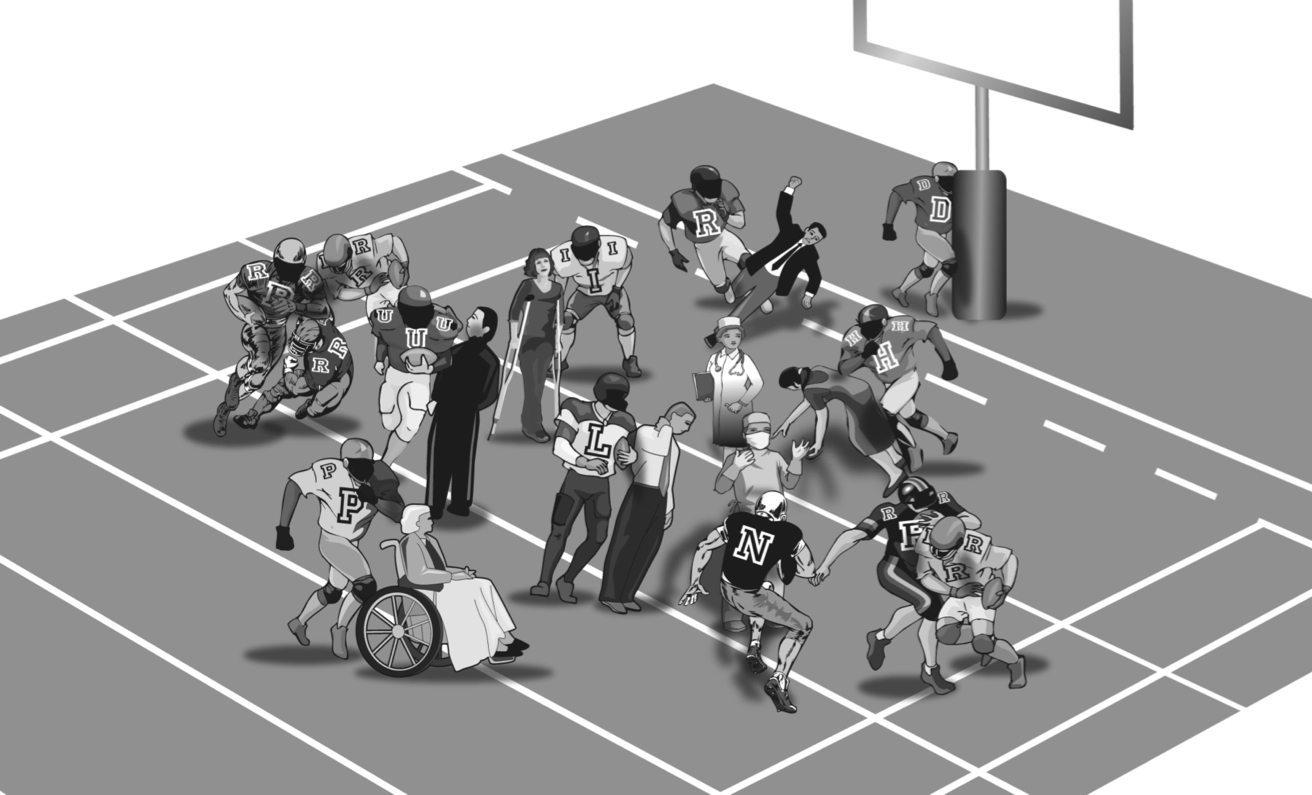A recent online article claimed, "Competition hasn't worked in health care." With respect, the author is completely off base. Real, effective competition has never been tried in health care.
Suppose that American football competed the way that American health care "competes." What would it look like? What would happen?
First, there would be no coin toss. In health care, there is no agreement upon goals and therefore, you don't know where the goalposts are that you must defend.
At the start of the game, the kicker would quietly sneak several strides back from the ball to get a running start and would turn around. He has to be sneaky about what he does because the rules require him to stand within one foot of the ball at kickoff and face away from the ball. Health care providers are saddled with equally ridiculous rules and regulations that make it hard-to-impossible for them to do their jobs.
As the game progresses, the halfback will fight (compete with) his own quarterback for possession of the ball, just the way providers and insurers -- both government and private -- compete for a limited number of dollars.
The offense would move the ball backwards rather than forwards. They fear an offside penalty. Health care providers also live in fear of being offside, which in their world is called being "out of regulatory compliance." Providers therefore must focus more on following rules than doing whatever the patient needs.
What does "winning" look like? If football kept score like healthcare, the winner would be whoever spends the least this week on player compensation. The score of last week's game would go unnoticed because no one cares about outcomes, only about spending.
(Lest you think that ACOs (accountable care organizations) will solve this problem, they too compete for -- they reward -- dollars saved, not long term patient outcomes.)
What do football teams compete for? You start to answer, "Winning games," but after thinking some more, you reply, "Well eventually, they want to win the Super Bowl."
Notice that the desired outcome is in the far future, not this coming week. More important, winning the Super Bowl is not what the teams really compete for. In the final analysis, what they compete for -- what they really want -- are fans.
Fans translate into ticket sales. Fans represent bonus payments and endorsement contracts. Once acquired, fans tend to be loyal, even if the team is having a bad year. In football, competition is all about fans. The "winner" is the on with the most fans.
What about health care? What do their players compete for? What should they compete for??
Apparently, health care keeps score based solely on initial spending. All we hear about is cutting costs -- really expenditures -- in the next budget cycle. Successful players of the health care game are the ones who cut today's costs the most. Is that really what We The Patients want?
Health care also competes for how many patients a plan can sign up but not how those patients do medically. Health status is not included in the scoring at all: competition has nothing to do with patient welfare.
Much worse, health care has its time line totally wrong. It looks only at immediate financial statements. Football players know they competing for an expanded and expanding fan base -- for the future. Health care players seem oblivious to future patient outcomes. What they don't compete for, but should, are two outcomes: long term good health of the populace, and avoided costs for decades to come.
If football competed the way that health care does, no one would watch. No one would care. In health care, people care a great deal but they do not understand that it is competing all wrong. Further, the game itself -- of health care -- works against itself and our welfare.
If the above seems too amorphous and theoretical, consider a different, more specific analogy. It is taken from the book, Not Right!, which will be available in late 2012.
Imagine an American football game where the players' helmets are completely solid and totally opaque. They cannot see anyone or hear anything.
The players' jerseys have big letters on them representing teams named Congress, Doctors, Hospitals, Insurance, Lawyers, Nurses, Pharmaceuticals, Regulators, and Unions. There is no Team PT (for patients), but they -- the patients -- are on the playing field. They have no helmets, mouth guards, pads, or protection of any kind.
In this football competition, just as in U.S. health care, the rules are contradictory; the game plans keep changing; the owners keep making promises they can't keep; and the goalposts are invisible.

Can you envision this game? Imagine the confusion, the mayhem. As the players cannot see or hear, they run around blindly and without coordination. They knock down whatever they encounter: other players, their own teammates, the referees, the goalposts, even and especially the (unprotected) patients.
How do you play a game like that? What do the players compete for? How do you keep score? Who wins? Who loses? That is how U.S. health care currently "competes."
You cannot tell who wins. You can be sure who loses.